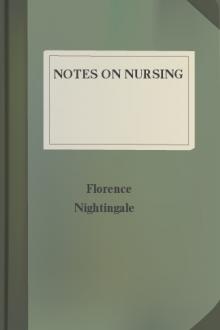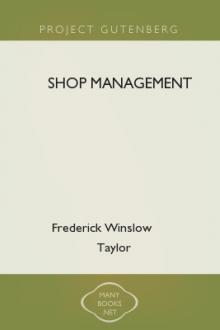Genre Literary Collections. Page - 15

erths in Sleepers--Elderly Ladies have Preference of Berths--An American Lady Takes One Anyhow--How Smythe Lost his Berth--How He Got Even--The Suttee
CHAPTER XLIX.
Pyjamas--Day Scene in India--Clothed in a Turban and a Pocket Handkerchief--Land Parceled Out--Established Village Servants--Witches in Families--Hereditary Midwifery--Destruction of Girl Babies--Wedding Display--Tiger-Persuader--Hailstorm Discourages--The Tyranny of the Sweeper--Elephant Driver--Water Carrier--Curious Rivers--Arrival at Allahabad--English Quarter--Lecture Hall Like a Snowstorm--Private Carriages--A Milliner--Early Morning--The Squatting Servant--A Religious Fair
CHAPTER L.
On the Road to Benares--Dust and Waiting--The Bejeweled Crowd--A Native Prince and his Guard--Zenana Lady--The Extremes of Fashion--The Hotel at Benares--An Annex a Mile Away--Doors in India--The Peepul Tree

nts, weather conditions and other factors. There isno way of predicting in advance what areas of the country would beaffected by fallout, or how soon the particles would fall back to earthat a particular location.
Some communities might get a heavy accumulation of fallout, whileothers--even in the same general area--might get little or none. No areain the U.S. could be sure of not getting fallout, and it is probablethat some fallout particles would be deposited on most of the country.
Areas close to a nuclear explosion might receive fallout within 15-30minutes. It might take 5-10 hours or more for the particles to driftdown on a community 100 or 200 miles away.
Generally, the first 24 hours after fallout began to settle would be themost dangerous period to a community's residents. The heavier particlesfalling during that time would still be highly radioactive and give offstrong rays. The lighter particles falling later would have lost much oftheir radiation high in the atmosphere

ter or butter, 2 tablespoons choppedparsley, 1 tablespoon wholemeal flour, 1-1/2 pints water.
First put on the chestnuts (without shelling or pricking) in cold water,and boil for an hour. Then remove shells and put the nuts in an enamelledsaucepan with the fat. Fry for 10 minutes. Add the flour gradually,stirring all the time, then add the water. Cook gently for half an hour.Lastly, add the parsley, boil up, and serve.
It is rather nicer if the flour is omitted, the necessary thickness beingobtained by rubbing the soup through a sieve before adding the parsley.Those who do not object to milk may use 1 pint milk and 1 pint water inplace of the 1-1/2 pints water.
5. FRUIT SOUP.
Fruit soups are used extensively abroad, although not much heard of inEngland. But they might be taken at breakfast with advantage by thosevegetarians who have given up the use of tea, coffee and cocoa, and objectto, or dislike, milk. The recipe given here is for apple soup, but pears,plu

be just from convention or enactment. The latter, he says, can be just only with respect to those things which by nature are indifferent. Thus when a newly reconstituted city took a living Spartan general for its eponymus, no one was bound by nature to sacrifice to Brasidas as to an ancestor, but he was bound by enactment and after all the matter was one of convention, which, in a society framed on the model of an organized kindred, required that the citizens have a common heroic ancestor, and was morally indifferent. The distinction was handed down to modern legal science by Thomas Aquinas, was embodied in Anglo-American legal thought by Blackstone, and has become staple. But it is quite out of its setting as a doctrine of mala prohibita and mala in se. An example of the distinction between law and rules of law has become the basis of an arbitrary line between the traditionally anti-social, penalized by the common law, and recently penalized infringements of newly or partially recognized s

th to the backs of older brothers or sisters, and living in the streets in all weathers. When it is cold, the sister's haori, or coat, serves as an extra covering for the baby as well; and when the sun is hot, the sister's parasol keeps off its rays from the bobbing bald head.[*8] Living in public, as the Japanese babies do, they soon acquire an intelligent, interested look, and seem to enjoy the games of the elder children, upon whose backs they are carried, as much as the players themselves. Babies of the middle classes do not live in public in this way, but ride about upon the backs of their nurses until they are old enough to toddle by themselves, and they are not so often seen in the streets; as few but the poorest Japanese, even in the large cities, are unable to have a pleasant bit of garden in which the children can play and take the air. The children of the richest families, the nobility, and the imperial family, are never carried about in this way. The young child is borne in the arms of an

or Roosevelt, everything evil originated in theKaiser Wilhelm, Lenin and Trotsky. They were as omnipotent for evil asthe heroes were omnipotent for good. To many simple and frightenedminds there was no political reverse, no strike, no obstruction, nomysterious death or mysterious conflagration anywhere in the world ofwhich the causes did not wind back to these personal sources of evil.
3
Worldwide concentration of this kind on a symbolic personality is rareenough to be clearly remarkable, and every author has a weakness forthe striking and irrefutable example. The vivisection of war revealssuch examples, but it does not make them out of nothing. In a morenormal public life, symbolic pictures are no less governant ofbehavior, but each symbol is far less inclusive because there are somany competing ones. Not only is each symbol charged with less feelingbecause at most it represents only a part of the population, but evenwithin that part there is infinitely less suppression of individualdiff

the air without in the rooms you sleep in? Butfor this, you must have sufficient outlet for the impure air you makeyourselves to go out; sufficient inlet for the pure air from without tocome in. You must have open chimneys, open windows, or ventilators; noclose curtains round your beds; no shutters or curtains to your windows,none of the contrivances by which you undermine your own health ordestroy the chances of recovery of your sick.[4]
[Sidenote: When warmth must be most carefully looked to.]
A careful nurse will keep a constant watch over her sick, especiallyweak, protracted, and collapsed cases, to guard against the effects ofthe loss of vital heat by the patient himself. In certain diseasedstates much less heat is produced than in health; and there is aconstant tendency to the decline and ultimate extinction of the vitalpowers by the call made upon them to sustain the heat of the body. Caseswhere this occurs should be watched with the greatest care from hour tohour, I had almost said

tal conflict of life, within the possibilities of the human mind as we know it. We permit ourselves also a free hand with all the apparatus of existence that man has, so to speak, made for himself, with houses, roads, clothing, canals, machinery, with laws, boundaries, conventions, and traditions, with schools, with literature and religious organisation, with creeds and customs, with everything, in fact, that it lies within man's power to alter. That, indeed, is the cardinal assumption of all Utopian speculations old and new; the Republic and Laws of Plato, and More's Utopia, Howells' implicit Altruria, and Bellamy's future Boston, Comte's great Western Republic, Hertzka's Freeland, Cabet's Icaria, and Campanella's City of the Sun, are built, just as we shall build, upon that, upon the hypothesis of the complete emancipation of a community of men from tradition, from habits, from legal bonds, and that subtler servitude possessions entail. And much of the essential value of all such speculations lies in this a

e city council was backed by a large body of serious opinion throughout the country. A proof of this, if proof were needed, is to be found in the circumstances that gave rise to the Apologie of Sidney.
The attack on the stage had been opened by the corporation and the clergy. It was soon joined by the men of letters. And the essay of Sidney was an answer neither to a town councillor, nor to a preacher, but to a former dramatist and actor. This was Stephen Gosson, author of the School of Abuse. The style of Gosson's pamphlet is nothing if not literary. It is full of the glittering conceits and the fluent rhetoric which the ready talent of Lyly had just brought into currency. It is euphuism of the purest water, with all the merits and all the drawbacks of the euphuistic manner. For that very reason the blow was felt the more keenly. It was violently resented as treason by the playwrights and journalists who still professed to reckon Gosson among their ranks. [Footnote: Lodge writes, "I

own good it is as important that workmen should not be very much over-paid, as it is that they should not be under-paid. If over-paid, many will work irregularly and tend to become more or less shiftless, extravagant, arid dissipated. It does not do for most men to get rich too fast. The writer's observation, however, would lead him to the conclusion that most men tend to become more instead of less thrifty when they receive the proper increase for an extra hard day's work, as, for example, the percentages of increase referred to above. They live rather better, begin to save money, become more sober, and work more steadily. And this certainly forms one of the strongest reasons for advocating this type of management.
In referring to high wages and low labor cost as fundamental in good management, the writer is most desirous not to be misunderstood.
By high wages he means wages which are high only with relation to the average of the class to which the man belongs and which are paid only to those